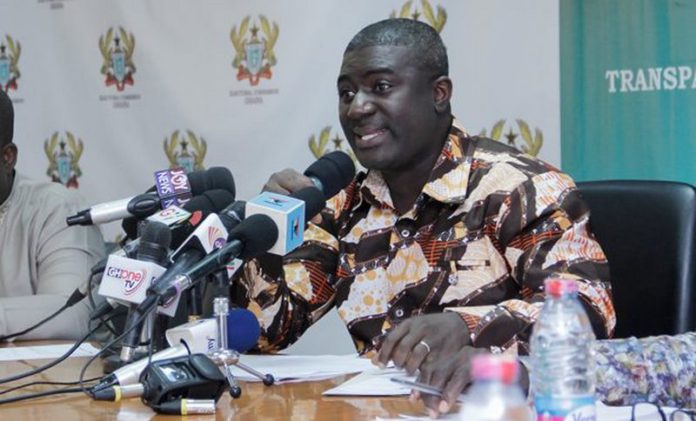adverts
Dr. Bossman Asare, the Deputy Chairperson of the Electoral Commission (EC), has dismissed the notion that the peace and outcome of elections are solely the responsibility of the EC Chairperson.
His remarks come amid growing public discussions about the EC’s role in maintaining electoral integrity and ensuring a peaceful election process.
Speaking to journalists in Accra on Monday, Dr. Asare emphasised that it is misleading to suggest that the EC Chairperson alone is accountable for peaceful elections.
adverts
“The suggestion that the peace and the outcome of the election are hinged on the chairperson of the EC is completely untrue,” Dr. Asare stated.
He urged the public to disregard claims, even from well-known figures, that place the responsibility for peaceful elections solely on the shoulders of the EC Chairperson.
These comments follow statements made by Dr. Nyaho Nyaho-Tamakloe, a senior statesman and founding member of the New Patriotic Party (NPP), who labelled the Electoral Commission as the greatest threat to Ghana’s democracy.
Dr. Nyaho-Tamakloe raised serious concerns about the EC’s handling of voter transfers, particularly questioning the legitimacy of the process when transfers are made without the direct involvement of the voters.
Speaking at the Crusaders Against Corruption event in Accra, themed “The Scarface of Corruption in Ghana: How Corruption Brings About Poverty,” Dr. Nyaho-Tamakloe warned that the EC’s actions could lead the country into crisis if Ghanaians do not remain vigilant.
“We have had leaders; I am saying that at the moment, the greatest threat to our democracy is the Electoral Commission. That is the greatest threat to our democracy, and if we are not careful, we will lead this country into destruction,” he cautioned. “Why do I say so? How on earth can transfers be made from one particular constituency to another without the consent of the person? These are facts.”
Dr. Asare’s comments appear to be a direct response to such criticisms, reaffirming the EC’s commitment to a transparent and fair electoral process involving multiple stakeholders and not resting solely on one individual.


